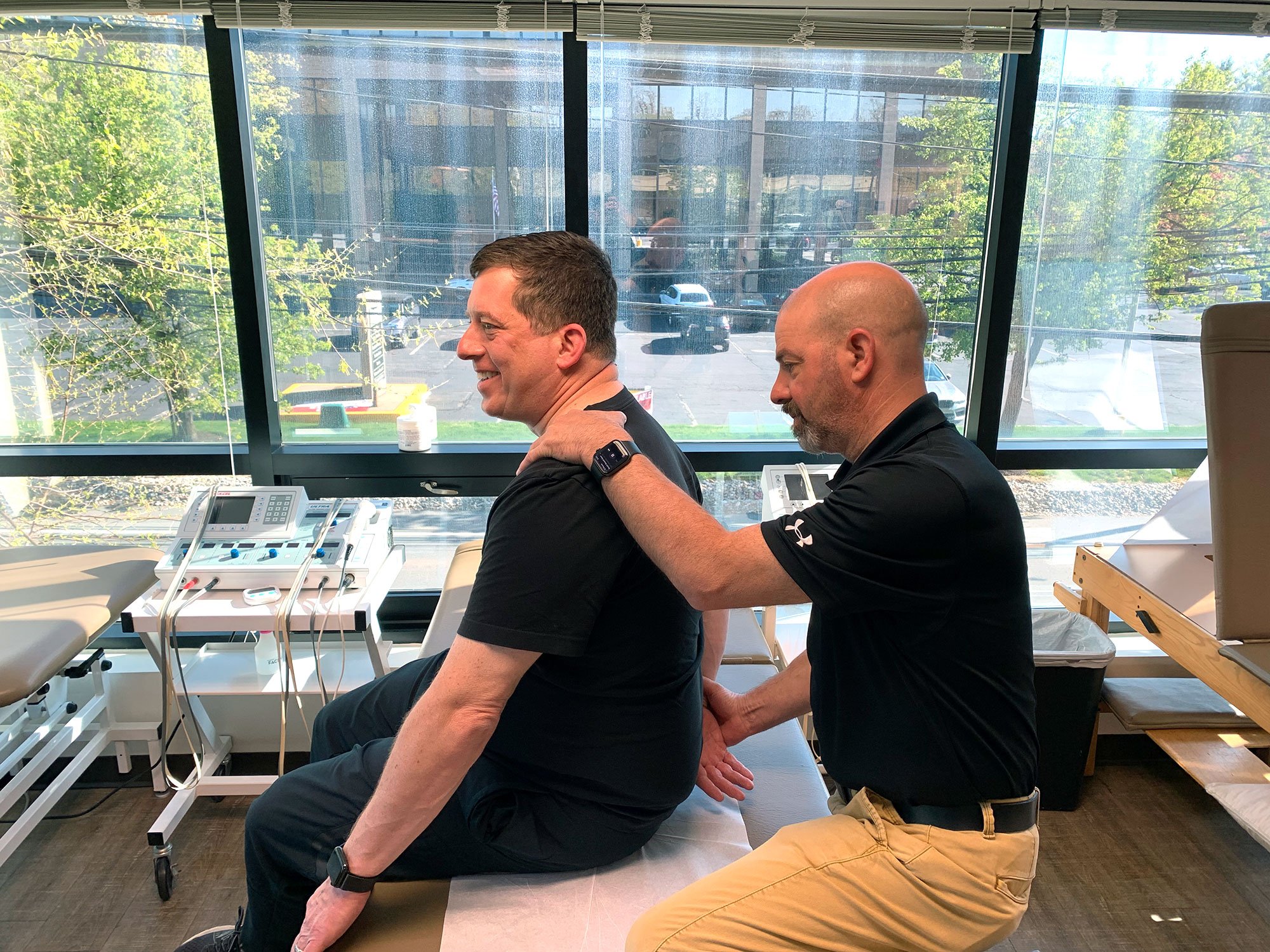Can Physical Therapy Fix a Torn Rotator Cuff?
Shoulder pain is one of the most common orthopedic ailments experienced by individuals of all ages. The prevalence of shoulder pain does increase with age, but this does not mean that treatment options are not available for all ages and levels of severity. A common source of shoulder pain is rotator cuff tears. It is important to note that not all rotator cuff tears are created equal, and that many of us have rotator cuff tears and absolutely no shoulder pain.
Physical therapy is the first line of defense in improving most painful shoulder conditions, especially rotator cuff tears. You may ask the question, “Can Physical Therapy Fix my rotator cuff tear?”
This question has a few parts to the answer that involve a Yes and No. It is most important to know that most patients who seek physical therapy for their rotator cuff have a better chance of resolving their pain than not.
Yes, Physical Therapy Can Fix Rotator Cuff Tears
Well, this may be a biased answer. We first have to define “Fix.” Physical therapy is effective at reducing pain and improving function for those with rotator cuff tears. It is important to know that exercise and physical therapy can improve the strength and integrity of the untorn portion of the tendon, which can yield most of the benefits of repairing the torn portion of the tendon. Most patients' goals are to “return to normal,” involving eliminating their pain levels and having full function and strength of their shoulder and arm.
Physical therapy is the best option for achieving these goals. Not all individuals will improve with physical therapy, but it is important to know that the rehab process after a surgery can be between 4-16 months and does not guarantee success. It is important to trial physical therapy prior to considering surgery due to a high likelihood of benefit for most patients. Many patients will see meaningful reductions in pain in 3-6 weeks and sometimes less Improvement in function takes slighlty longer, about 6-8 weeks. These are generalized guidelines. A skilled physical therapist will be able to give you an individualized evaluation of your specific case, including what positive and negative factors will affect your outcome.
No, We Cannot Actually Fix The Tear, but we can improve the symptoms and function.
And this is fine! Most patients will regain their function and experience the pain reduction they are looking for while the tear is still present. Some factors that can reduce the pain in your shoulder are:
Proper range of motion at the shoulder, neck, and mid back
Proper strength of the muscles that support the shoulder blade
Proper trunk and core strength
Proper Grip Strength
At what point should I consider surgery?
Physical therapists are specifically educated to determine if surgery would be a better option for you based on a number of factors including:
How the pain started. Did it progress over time, or did something traumatic happen?
Is the pain unchanging? Have We hit a plateau with care?
Is the strength unchanging?
Is proper treatment intolerable due to pain?
While Physical Therapy is your best starting point in nearly all cases, a skilled PT will be able to guide you in the right direction based on your case. It is important to have a proper diagnosis and full assessment of your contributing factors. Many patients are very concerned with the findings on their MRI. While an MRI can be somewhat helpful, it only tells a very small part of the story. Modifiable factors such as joint stiffness, range of motion, and strength are not displayed on imaging. Creating a treatment plan that considers both your imaging as well as the factors found during your exam is crucial in getting you better. You may be surprised that treating the neck and mid back can be the fastest way to feel better in some cases.
If you are interested in all of the treatment options available to you, Request An Appointment with us today to undergo a full evaluation. Our experienced physical therapists can help you create a plan addressing your impairments and explaining what makes you a candidate for rehab vs. surgery.

